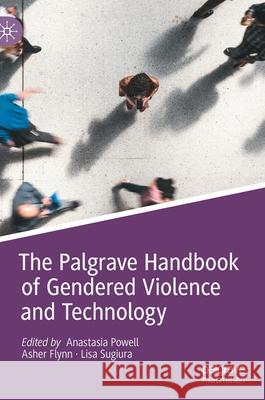The Palgrave Handbook of Gendered Violence and Technology » książka



The Palgrave Handbook of Gendered Violence and Technology
ISBN-13: 9783030837334 / Angielski / Twarda / 2021 / 756 str.
The Palgrave Handbook of Gendered Violence and Technology
ISBN-13: 9783030837334 / Angielski / Twarda / 2021 / 756 str.
(netto: 766,76 VAT: 5%)
Najniższa cena z 30 dni: 771,08
ok. 16-18 dni roboczych.
Darmowa dostawa!
1. Gender, Violence and Technology: At a conceptual and empirical crossroad - Anastasia Powell, Asher Flynn and Lisa Sugiura
This handbook provides a comprehensive treatise of the concepts and nature of technology-facilitated gendered violence and abuse, as well as legal, community and activist responses to these harms. It offers an inclusive and intersectional treatment of gendered violence including that experienced by gender, sexuality and racially diverse victim-survivors. It examines the types of gendered violence facilitated by technologies but also responses to these harms from the perspectives of victim advocates, legal analyses, organisational and community responses, as well as activism within civil society. It is unique in its recognition of the intersecting drivers of inequality and marginalisation including misogyny, racism, colonialism and homophobia. It draws together the expertise of a range of established and globally renowned scholars in the field, as well as survivor-advocate-scholars and emerging scholars, lending a combination of credibility, rigor, currency, and innovation throughout. This handbook further provides recommendations for policy and practice and will appeal to academics and students in Criminology, Criminal Justice, Law, Socio-Legal Studies, Politics, as well as Women’s and/or Gender Studies.
1997-2026 DolnySlask.com Agencja Internetowa
KrainaKsiazek.PL - Księgarnia Internetowa









